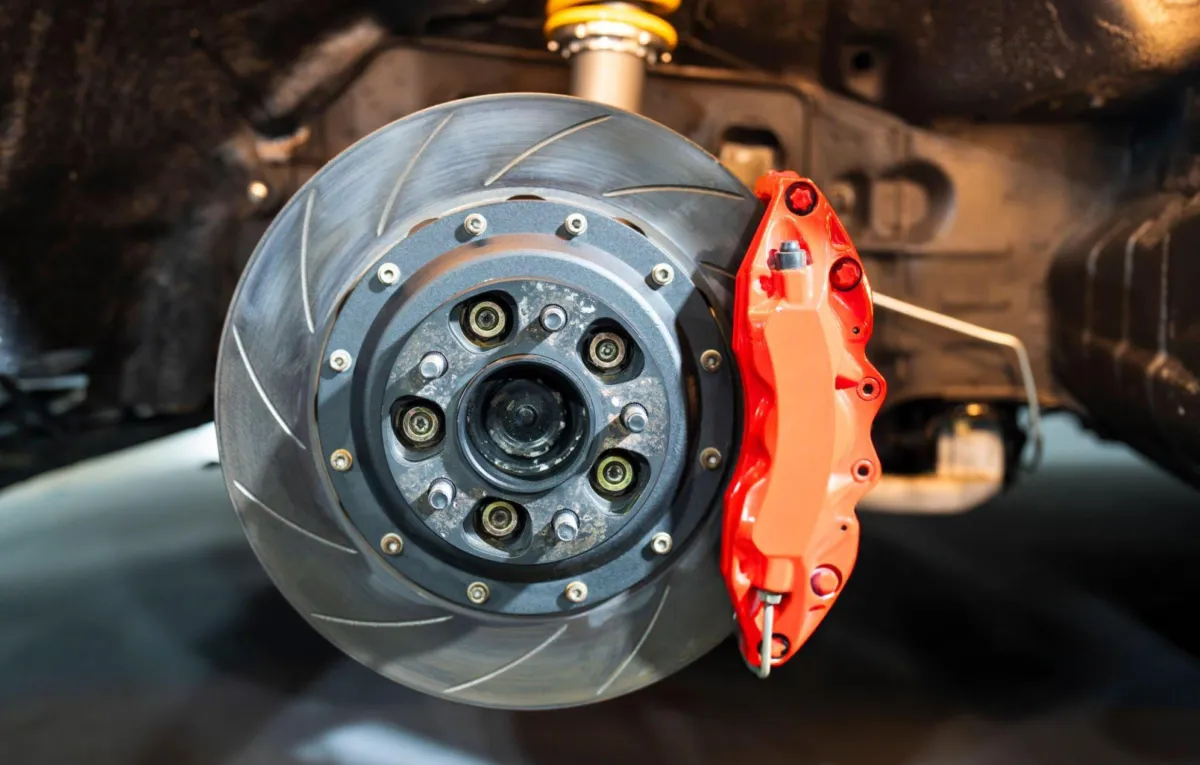
Common Brake Pad Issues and How To Spot Them Early
Car brake pads are like the unsung heroes of road safety. They're those crucial components that grip the brake rotors and help bring your vehicle to a stop. Over time, they wear out, which isn’t always easy to notice until you hear that squeak or feel a slight delay when stopping. If you can catch the signs early, you can save yourself quite a bit of hassle and possibly avoid costly repairs. Keeping an eye on your brake pads not only keeps your car in great shape but also ensures your safety on the road.
Imagine you're driving your usual route in Glasgow, and suddenly, your brakes don't respond as sharply as they used to. It's a bit like trying to stop a fast-moving skateboard with your foot—there's a definite lag and a sense of loss of control. By keeping a watchful eye on your brake's health, you can spot trouble before it becomes a real issue. Let's break down how you can identify these issues early on.
Signs of Worn Brake Pads
Your brakes might not speak, but they can surely make their condition known. Here are a few things to look out for:
- Squeaking or Squealing Noise: This is like the brakes' way of saying, "Hey, check me out!" Worn brake pads often make high-pitched sounds that are pretty hard to ignore.
- Reduced Braking Performance: Have you noticed your car taking longer to come to a halt? This could be a sign that your brake pads are thinning out.
- Dashboard Warning Lights: Sometimes, your car will signal a brake issue with a warning light. While this could mean a variety of things, it’s often connected to your brake pads.
- Spongy Brakes: When you press the brake pedal, it should feel firm. If it feels more like you're stepping on a sponge, it's time to get those brakes looked at right away.
Unresponsive brakes or any sudden changes in how your car stops should raise alarms. Ignoring these signals can lead to bigger problems down the line. Your brakes are your best friends when it comes to safety, so treat them well by paying attention to these signs.
Visual Inspection Tips
Keeping an eye on your brake pads can be as simple as looking through your car's wheels. You can spot signs of wear just by glancing at them when parked. The thickness of a brake pad is an important factor; newer ones typically start out thick, around 10-12mm. If yours are less than 3mm, it's time to get them replaced. Here’s how you can go about it:
1. Park your car on a flat surface and safely remove the wheel.
2. Look for the brake pads in the wheel hub.
3. Check for obvious signs of wear:
- Cracks or Glazing: If the pads show visible cracks or glazed spots, they should be inspected by a professional.
- Uneven Wear: This indicates an alignment issue or a more serious brake system problem.
- Thinning Pad: Measure the thickness to ensure it's not below the minimum.
Staying informed about these visual cues ensures that your brakes are dependable. Regular checks can prevent minor issues from turning into major hassles.
Causes of Premature Brake Pad Wear
It’s not just time that affects brake pads. Several factors can speed up their wear, leading to more frequent replacements. Here are a few scenarios that can make your brake pads wear out faster:
- Aggressive Driving: Hard braking and rapid acceleration put a lot of strain on brake pads.
- Frequent City Driving: In a place like Glasgow, with its bustling streets and frequent stops, brake pads tend to wear down more quickly.
- Carrying Heavy Loads: Transporting heavy items regularly can strain your brakes, as they have to work harder to stop the vehicle.
Being aware of these causes helps in adjusting driving habits, which in turn ensures your brakes last longer.
Professional Brake Services and Prevention
Regular inspections by a professional are key to avoiding brake issues. Technicians can spot problems you might miss and provide solutions before they escalate. Routine maintenance ensures that brake components function properly. Here's how you can help keep your brakes in optimal shape:
- Schedule regular brake checks, especially if you notice any warning signs.
- Replace brake pads and other components before they become too worn.
- Follow the advice of your mechanic regarding timely replacements.
Understanding the importance of professional care not only enhances brake performance but also extends the lifespan of your vehicle’s braking system.
Keep Your Brakes in Top Shape
Being vigilant about brake pad health keeps your car reliable and safe. With regular checks and timely interventions, most brake-related problems can be handled before they become serious. Your safety on the road begins with well-maintained brakes. Engaging in proactive maintenance and seeking professional advice goes a long way in ensuring that you're always prepared to stop when you need to.
Maintaining your brake pads is all about safety and ensuring your vehicle stays reliable on the road. When it's time to consider replacement or any checks, turn to experts you can trust. Visit Langlands Road Garage to learn more about our car brake pad replacement services. Whether you're experiencing any warning signs or need a routine inspection, we're here to help keep you cruising safely through Glasgow.